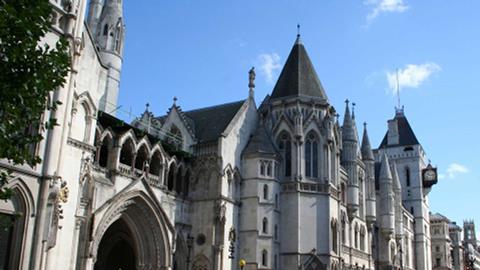Claimant lawyers have been warned not to expect any let-up in litigation from former clients demanding to know why their damages have been reduced.
The sector last week toasted the latest in a series of court victories, as a judge ruled that north-west firm Mooney Everett was solely responsible for deciding the content and terms of its costs bill.
The case had been brought on behalf of a former client by Leeds practice JG Solicitors, which specialises in challenging law firm costs. The practice also failed earlier this month to persuade a judge to allow access to copies of documents on a law firm’s file in order to establish whether its client had been overcharged.
The decisions will be welcomed by claimant firms, but the notion this might set back a burgeoning cottage industry has been dismissed.
James Green, managing director of JG Solicitors, told the Gazette the firm will ‘continue to fight’ for clients who had been advised that their lawyers were entitled to take 25% of their damages.
Clerksroom barrister Robin Dunne, a costs expert instructed by JG Solicitors in the Mooney Everett case, said it was inevitable that challenges to deductions will increase, saying the issue ‘is not going to go away’, with recent arguments over disclosure masking wider underlying issues.
Dunne acknowledged the difficulties encountered by personal injury firms in particular but said some will have to change their charging model if they want to avoid clients returning with refund demands.
‘The fundamental problem is that some solicitors take the 25% maximum contribution as the sum that will be recovered in any case, whatever the work done,’ said Dunne. ‘The reasons for this are commercially understandable and I have sympathy with firms trying to successfully run PI practices in the current climate. However, that does not justify overcharging – the 25% is a maximum cap, not a starting point or a figure that should be recovered on every case.’
Dunne advised firms to provide clients with a full breakdown of their costs and deductions at the time the invoice is raised, giving clients the chance to bring up any concerns at the time rather than litigate later.
Sitting in the High Court in Parvez v Mooney Everett, Mr Justice Soole said it was established in Kingstons v Reiss that a document was not a bill of costs unless it was sent by a solicitor to the client as a demand.
The judge added: ‘Neither the client nor the court can make that determination on [the solicitor’s] behalf.’
Firms were allowed to deduct up to 25% of damages through reforms included in the Legal Aid, Sentencing and Punishment of Offenders Act. The legislation abolished the recoverability of success fees and ATE insurance from losing defendants.
A spokesman for the Association of Costs Lawyers noted that judges have recently acknowledged the increasing number of invoice challenges. He sounded a word of caution for lawyers entering this market, adding: 'Those looking to challenge former solicitors’ charges have several hurdles to clear and the recent reported cases show that this is not easy.
'Detailed attacks on bills are reminiscent of last decade’s costs wars and ultimately emphasise the need for solicitors to ensure that their retainers are rock solid to start with.’




























63 Readers' comments